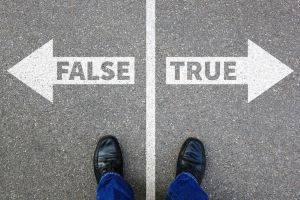 Nobody likes it when other people are not truthful with them. Most people value honesty, and they believe they can tell when someone is lying. However, spotting lies is often much more difficult than one would expect, and even so-called experts who study human behavior have a poor track record of determining when people are not telling the truth in real-world situations. While the inability to recognize lies can be troublesome in people’s daily lives, this issue becomes even more serious when a person is facing criminal charges. Law enforcement officials often build cases against suspects based on their perceptions of whether a person is telling the truth, and during a trial, a judge or jury may base their decisions on whether they find a defendant or a witness to be trustworthy. People’s biases play a significant role in these cases, and this can lead to unjust results.
Nobody likes it when other people are not truthful with them. Most people value honesty, and they believe they can tell when someone is lying. However, spotting lies is often much more difficult than one would expect, and even so-called experts who study human behavior have a poor track record of determining when people are not telling the truth in real-world situations. While the inability to recognize lies can be troublesome in people’s daily lives, this issue becomes even more serious when a person is facing criminal charges. Law enforcement officials often build cases against suspects based on their perceptions of whether a person is telling the truth, and during a trial, a judge or jury may base their decisions on whether they find a defendant or a witness to be trustworthy. People’s biases play a significant role in these cases, and this can lead to unjust results.
There are a variety of ways that “experts” believe they can recognize when a person is lying. Some believe that people’s “microexpressions,” such as an inadvertent raising of the eyebrows or a slight upturn of the corner of the mouth, betray a person’s true feelings when they are making untrue statements. Others look at a person’s body language and claim that actions such as shrugging the shoulders, shifting the legs, or looking away from a person while speaking are indications of lying.
Some researchers have stated that they have high success rates of detecting lying when performing studies. However, the experiments conducted in laboratories are very different from real-life situations, and outside the lab, experts are usually unable to replicate these results. The average person is even less likely to accurately detect lies; one study found that people were only able to detect lies 54% of the time, which is only slightly better than if they had made guesses based purely on chance. This is true even for people such as police officers or judges who are supposedly experienced in dealing with people who lie. Studies have found that these professionals are no better at detecting deception than anyone else.
Despite these findings, many people still believe that they can determine when others are lying, but in many cases, they are simply acting on their previously-held beliefs. These biases can have a significant impact on criminal cases. For example, police officers may believe that a person is lying during an interrogation because they are acting fearful, even though this is a normal response to being in a frightening situation. Judges or juries can base their decisions on some of these same biases, failing to recognize that they are more likely to believe a police officer or another witness who lies with confidence, while also being less likely to believe a defendant is trustworthy because they seem nervous or upset.
Because defendants often have to deal with biases held by law enforcement officials, judges, and juries, it is crucial for anyone who is facing criminal charges to secure representation from an experienced attorney. At the Woolf & Ross Law Firm, LLC, we can make sure your rights are protected during your case, and we will advocate on your behalf inside and outside the courtroom, ensuring that you are treated fairly and helping you achieve a positive outcome to your case. To get the representation you need, contact our Connecticut criminal defense attorney at 860-290-8690 to set up a free consultation.
Sources:
https://www.scientificamerican.com/article/humans-are-pretty-lousy-lie-detectors/
 50 Founders Plaza
50 Founders Plaza

